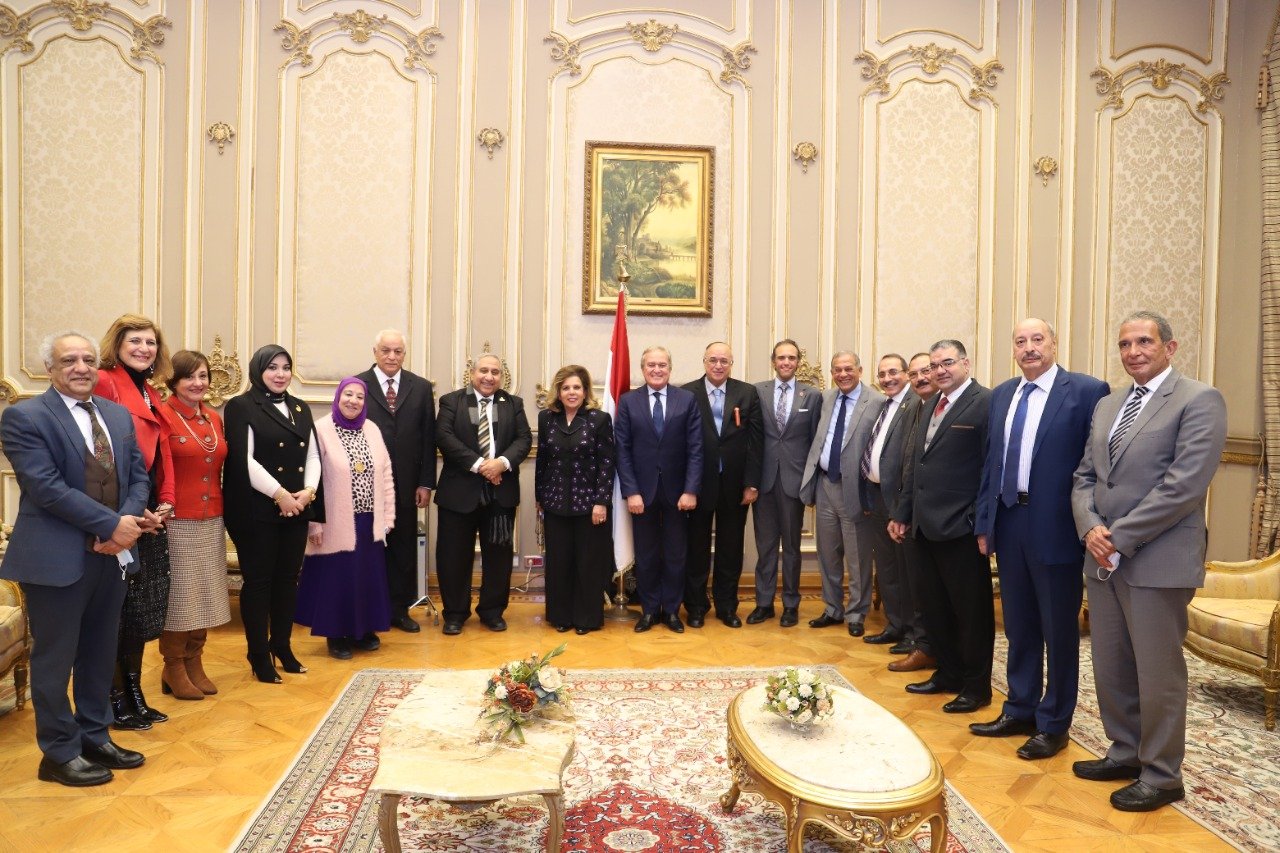NCHR cooperates with the Senate’s human rights committee
Ambassador Moushira Khattab, President of the National Council for Human Rights (NCHR), and the accompanying delegation, participated in the meeting of the Senate’s human rights and social solidarity committee aimed at discussing the national human rights strategy.
The NCHR’s delegation in the meeting included; Ambassador Dr. Mahmoud Karem, NCHR Vice-President, Mohammed Anwar El-Sadat, Ismail Abdelrahman, NCHR members, and Ambassador Ahmed Ismail, International Affairs Advisor.
MP Mohamed Heeba, Head of the Senate’s human rights and social solidarity committee, started the meeting by congratulating Ambassador Moushira Khattab, for assuming the duties of her new position as NCHR President.
He also noted that Ambassador Khattab has achieved numerous successes in her previous posts, in the diplomatic corps, and the National Council for Childhood and Motherhood (NCCM), highlighted that she has been nominated as the third top human rights activist in the Middle East and North Africa, among 5 women.
Ambassador Moushira Khattab extended her thanks to the Senate’s human rights and social solidarity committee for inviting NCHR to discuss visions and exchange expertise in the field of promoting the culture of human rights.
Khattab pointed out that the NCHR has formed its thematic committees, by democratic voting, noting that the council held three meetings in a month time.
Speaking of the criticism to the human rights file in Egypt, the NCHR President emphasized that all countries are facing human rights challenges. She added that Egypt has nothing to hide, and that the launch of the national human rights strategic is a promising move which has raised the bar in Egypt, along with President Abdel Fattah El-Sisi related statements.
Ambassador Moushira Khattab noted that the NCHR shall focus on the following pillars:
The first pillar consists on revising legislations in collaboration with the concerned authorities to harmonise them with international conventions ratified by Egypt.
The second pillar consists of empowering the state’s institutions related to the enforcement of human rights.
The third pillar consists of promoting the culture of human rights, capacity building and raising the public’s awareness.
The fourth pillar consists of building the capacities of state’s institutions personnel in relation to human rights.
Moreover, the NCHR President demanded to reinforce the mandate of the National Council for Childhood and Motherhood to be able to fulfil its role.
She also highlighted the importance to address the marriage of minors which violates the law no.126 of 2008.





 English
English
 Arabic
Arabic
 French
French
